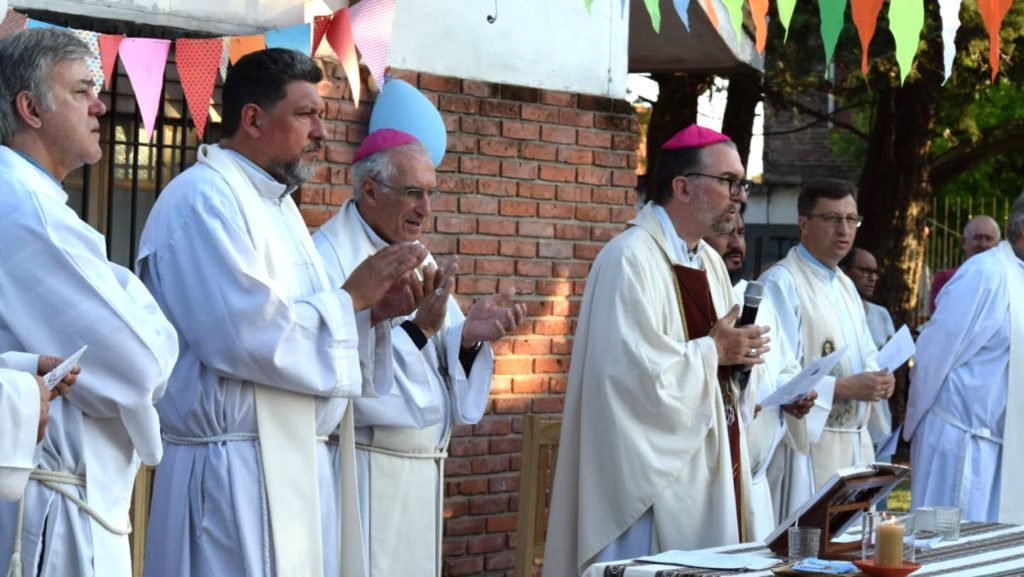Pope Francis has named a "cura villero" -- one of the priests working in the shantytowns of Buenos Aires -- to head the Argentine archdiocese previously led by Cardinal Víctor Manuel Fernández, prefect of the Dicastery for the Doctrine of the Faith.
Auxiliary Bishop Gustavo Carrara of Buenos Aires was named archbishop of La Plata on Nov. 21. Archbishop Carrara, 51, was ordained in 1998 by the then-Archbishop Jorge Mario Bergoglio of Buenos Aires -- now Pope Francis -- and began serving in the shantytowns of Buenos Aires, which are commonly called "villas miserias," or misery villages. He later became vicar for the ministry to the villas and was named an auxiliary bishop in 2017.
Mariano De Vedia, religion writer at the Argentine newspaper La Nación, described Archbishop Carrara as "close" to Pope Francis and having "natural leadership."
"All priests refer to him for pastoral issues," De Vedia told OSV News.
Archbishop Carrara enters a delicate situation in La Plata, which serves a region to the southeast of Buenos Aires.
The archdiocese has been vacant since May, when Archbishop Gabriel Mestre resigned after only eight months. The archbishop said he had been called to Rome to answer questions about "some aspects from the Diocese of Mar del Plata," after he had left the see. Two successors were named in Mar del Plata, but neither was installed.
De Vedia said an unofficial explanation for the difficulties in Mar del Plata was that people aligned with Archbishop Mestre, "who aspired to take over the diocese, apparently put obstacles in the way of appointments" made by the pope.
Archbishop Carrara arrives in La Plata at a challenging time for Argentina. Inflation has fallen sharply as President Javier Milei implements economic reforms and austerity measures. But poverty has surged to more than 50% of the population, according to government statistics.
"What we can offer is becoming increasingly scarce and it's harder for us to get donations because people have less to give," Archbishop Marcelo Daniel Colombo of Mendoza, the new president of the Argentine bishops' conference, told La Nación. "The population that goes to the soup kitchens is not the same. People from the lower middle class or those who live alone are starting to show up."

